
Land Use
Core Functions
The division collaborates effectively with the sectoral departments of Environment, Climate Change and Forests, Municipal administration and Water Supply & Housing & Urban Development, The division organizes meetings, workshops and studies on the current issues and challenges in these sectors and provides recommendations to the Government.
Sectoral Discussions
The Vertical organizes regular engagements with officials from sectoral departments. These sessions aim to synchronize stakeholders on the progress of State or Central government schemes, exchange departmental best practices, pinpoint sectoral challenges, and chart a strategic course ahead. SPC provides valuable insights and advocates for optimal practices, and these recommendations are then presented to the Government for thoughtful consideration.
Research & Knowledge Sharing
The Vertical undertakes internal research studies and collaborates with research institutes and academia to conduct assessments. They organize workshops, bringing together key stakeholders and experts, with a primary focus on analyzing emerging issues in land use, land resources, and land degradation. The overarching goal is to evaluate the impact of various policies and developmental programs in these domains.
Sectoral Departments
This Vertical coordinates with the following sectoral departments and their line departments:
Environment, Climate Change and Forests Department
- Forests Department
- Environment Department
- Tamil Nadu Pollution Control Board
- TN Forest Plantation Corporation Limited
- Arasu Rubber Corporation Limited
- TN Bio-diversity Conservation & Greening Project
Municipal Administration and Water Supply Department
- Commissioner of Municipal Administration
- Director of Town Panchayat
- Greater Chennai Corporation
- Chennai Metropolitan Water Supply & Sewerage Board
- Tamil nadu Water Supply and Drainage Board (TWAD)
- Tamil Nadu Water Investment Company Ltd.
- Urban Finance and Infra. Dev. Corpn. Ltd. (TUFIDCO)
- TN Urban Infrastructure Financial Services Ltd (TNUIFSL)
- Chennai River Restoration Trust (CRRT)
- New Tirupur Area Dev. Corpn. Ltd.
Housing and Urban Development Department
- Chennai Metropolitan Development Authority (CMDA)
- Town & Country Planning
- Tamil Nadu Housing Board
- Tamil Nadu Urban Habitat Development Board
- Registrar of Co-op Societies (Housing)
- Chennai Unified Metropolitan Transport Authority (CUMTA)
Tamilnadu State Land Use Research Board (TNSLURB)
TNSLURB was constituted in 2011 as a permanent body in the State Planning Commission to take up activities for the conservation of land and water resources and their sustained use to the best possible advantage of the people in the State.
Over the past 13 years, TNSLURB has conducted more than 80 research studies and facilitated 15 workshops and seminars on diverse themes related to land use. The results of these research initiatives have been meticulously documented and translated into policy recommendations. These findings have proven instrumental in guiding various government departments, assisting them in formulating schemes and programs to assess and enhance outcomes based on the research insights. TNSLURB link for further details
Assessments & Studies
Effective Management of Prosopis juliflora in the Southern Districts of Tamil Nadu
The natural propagation of Prosopisjuliflora, an invasive tree species in Tamil Nadu, has several negative impacts on social, ecological, and economic systems. These impacts include harm to water resources, natural water flow, grazing land for animals, and soil quality. Furthermore, Read More
The report examines the challenges linked with Prosopis, citing state specific case studies with successful local solutions. It also underscores sustainable practices and promotes data-driven decisions to manage the invasive species effectively.
Further the report explores the value addition of Prosopis tree and pods-based products. The report also lays emphasis on promoting local youth with entrepreneurial skills and to facilitate start-ups focused on these value-added products.
Sustainable Seaweed Farming in Tamil Nadu – Way Forward
The cultivation of seaweed has been a livelihood support activity for coastal communities in Tamil Nadu. As there is a high scope to improve on the value addition, it was felt essential to explore the scientific and economic aspects of seaweed cultivation to evolve a comprehensive policy Read More
This report documents the significance of seaweed cultivation, its impact on the environment and it provides a detailed overview of existing Government policies and programs to promote seaweed cultivation. The report would serve as an extensive guide for researchers, policymakers, marine conservationists, industry professionals, and stakeholders, offering valuable insights and suggestions for developing sustainable seaweed farming sector in Tamil Nadu.
Management of Forest Invasive Species in Tamil Nadu
Invasive alien species are considered as one of the major driver of biodiversity loss, posing significant threats to the health of the forests in our country.
This report aims to raise awareness of the pertinent hazards that invasive plant and tree species create in our ecosystems, Read More
Status of Forests in Tamil Nadu
The study signifies the changes in forest cover at the district level. The Forest and tree cover of TN is now about 30,843.23 sq. km which constitutes 23.71 % of the total geographical area. The State is taking up all efforts to reach its objective of 33 % of green cover before 2030. Read More
Ongoing Works

Socio-economic assessment and Environmental Vulnerability of Coastal Communities in TN
The purpose of the study is to identify the socio‑economic conditions and environmental risks faced by the coastal communities, particularly, the fisher community in the 14 coastal districts. It will emphasize the need for targeted interventions to enhance resilience and sustainable development in these vulnerable communities.
This is an in-house study conducted by State Planning Commission. Vulnerability of Coastal Communities is being carried out by the Centre for Climate Change and Disaster Management (CCCDM).Field surveys and Focus Group Discussions have been completed in all coastal districts

Analysis of the effect of Climate change on the Land Use Land Cover in Tamilnadu
The study examines how changes in Land Use and Land Cover (LULC) have affected local climate change in Tamil Nadu over the course of four decades, from 1981 to 2021. The following data are gathered for this study: satellite images, rainfall data, land surface temperature, sea Level rise and population data. This study will determine the increase of urban sprawl, deforestation, and climate change based on LULC changes.
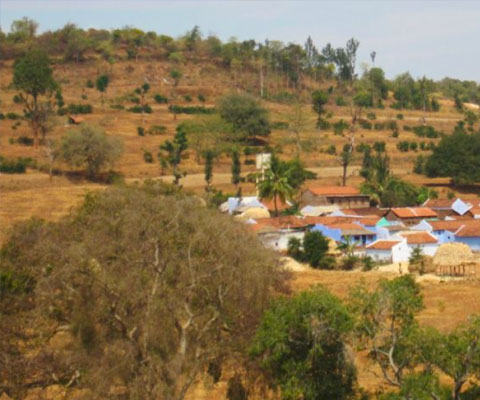
Influence of Land Use on Sustainable Development Goals – An analysis with respect to Tamil Nadu
Land use plays an essential role in achieving the Sustainable Development Goals. This study analyzes the indicators related to land use targets of 11 out of 17 sustainable Development Goals and towards its targets spread across SDG 1, 2 ,6, 7, 8, 9, 11, 12, 13, 14 and 15. Furthermore, 126 indicators out of 164 are linked to land use management and classified under the themes Agriculture, Energy, Environment, Water, Housing, Animal Husbandry & Fisheries, Disaster, Infrastructure, Tourism and Natural Resources.Read More
The SDGs identified in this study may not go far enough in taking a bold stance to address systemic poverty and inequality, each land-related sub goal has the potential to effect change for sustainable development and clearly links land to a wide set of development objectives.

Framework for Nature Based Solutions for enhancing Urban Resilience in Tamil Nadu
The aim of the project is to develop a Framework for mainstreaming Nature-based Solutions (NbS) for urban resilience in tier 2 cities in Tamil Nadu.
The main objectives are to identify the opportunities and challenges for integrating NbS at various governance scales i.e urban local bodies (ULBs); to study best practices, their applicability and contextualization towards specific identified opportunities and challenges; Read More
This holistically results in contributing an integrated disaster mitigation, climate resilient strategies, sustainable economic growth and development in accordance with the UN Sustainable Development Goals. This project is done in collaboration with GIZ and CUBE.

Identifying Urban Heat Island Hotspots and mitigation strategies to reduce the UHIE impact in Tamil Nadu
The recent trend shows that the number of persons living in urban areas will continue to grow faster than the population in rural areas due to migration and increasing urbanization. Furthermore, due to fast urbanization, cities will be impacted by UHIE.
The objective of the study is to carry out the surface-level Urban Heat Island, with the primary goal being to map the current hotspots around Tamil Nadu. This will allow for the preparation of an appropriate Urban Heat Island Effect mitigation plan.
This study is done in collaboration with UNEP and CEPT University.[/read]
Collaborative Initiatives/Action Plan for the State

Tamil Nadu Heat Mitigation Strategy
Exploring the ongoing efforts towards heat mitigation, the State Planning Commission set up the Heat action network to advance efforts for inter-departmental and intersectoral engagement towards heat mitigation.
UK-British High Commission extended its technical support to the development of “TN Heat Mitigation Strategy and Action Plan”. Collaboration letter between SPC and British Deputy High Commission Chennai was exchanged in the presence of UK Minister of State Commonwealth and Development Affairs at TNGIM 2024.
This strategic report helps to address the impact of increasing Read More

Skill share on Low Emission Zone
Low Emission Zoning is a city planning strategy that tackles the rising concerns of air pollution and climate change. The aim is to improve the air quality, lower the city’s carbon footprint and address climate change, and improve the overall well-being of residents. The State Planning Commission in association with Read More
This toolkit brings together many best practices from land use planning, transportation strategies, sustainable emission reduction guidelines. This toolkit aims to help Chennai’s city administration create a more sustainable and healthy future for the residents.
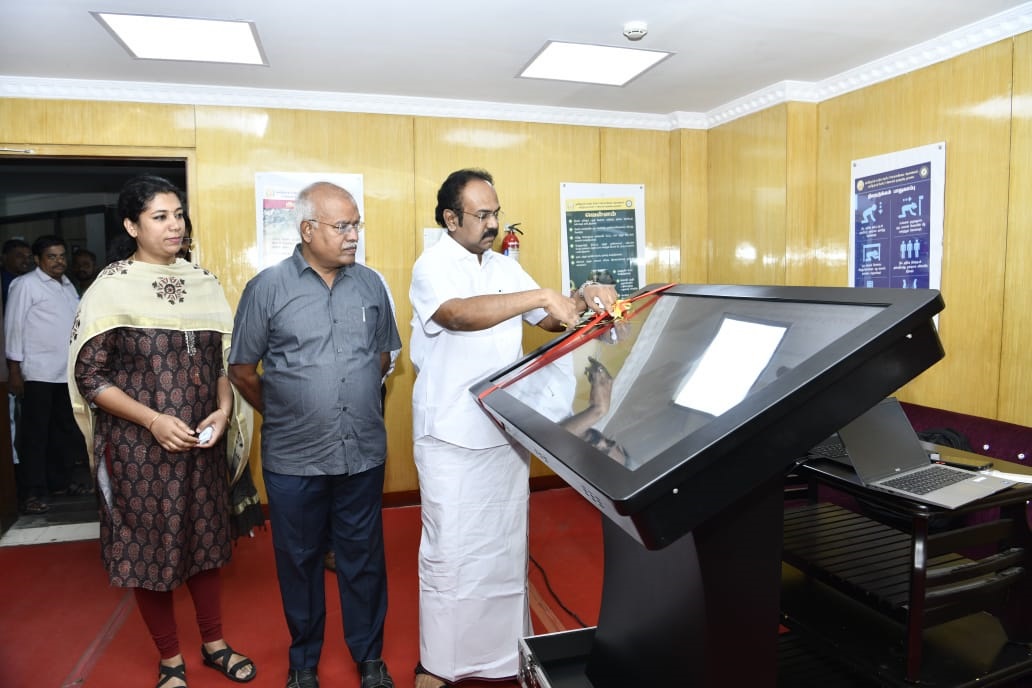
Toolkit for Open and Sustainable City Planning and Analysis –TOSCA
GIZ (German Agency for International Cooperation), an organization funded by the German government has provided the TOSCA tool to the State Land Use Research Board. This tool is designed to facilitate research for urban planning and analysis. TOSCO helps to assist in software applications, guidelines, data sets, and methodologies to assist city planners, policymakers, and stakeholders in making informed decisions for sustainable urban development.
Special Area Development Programme (SADP)

Special Area Development Programme (SADP) from the year 2015-2021
The Special Area Development Programme (SADP) in Tamil Nadu was launched in 2015-2016, succeeding the Hill Area Development Programme (HADP) and Western Ghats Development Programme (WGDP). It focused on integrating activities in hilly areas of the State. SADP Unit-I covered The Nilgiris, Coimbatore, Tirupur, and Erode, while Unit-II covered Madurai, Theni, Dindigul, Virudhunagar, Tirunelveli, Tenkasi, and Kanyakumari. In 2021, Units I and II were merged, with headquarters in Udhagamandalam. The program aimed to address the interaction between water, production landscapes, human livelihood, ecosystem services, and water biodiversity in these hilly regions. The annual outlay of Rs. 75.00 crore is allotted for this programme.
Gallery
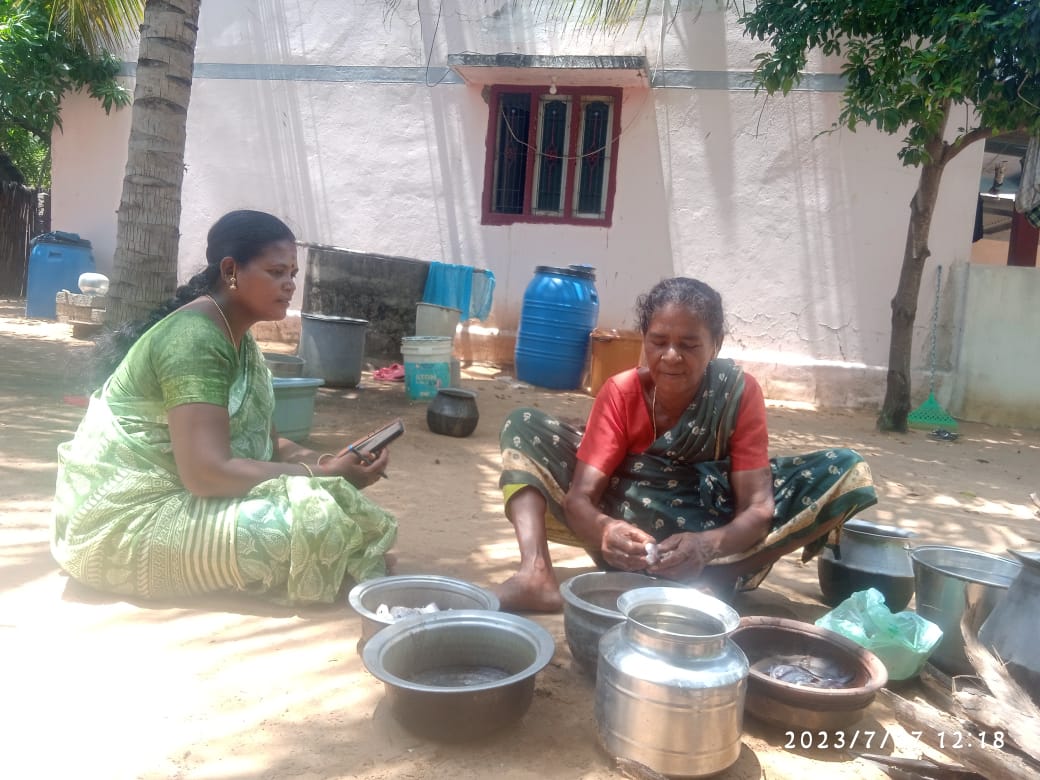
Identifying socio-economic vulnerabilities of fishermen communities
Identifying socio-economic vulnerabilities of fishermen communities
Survey with fisherwomen in Villupuram district for the study on identifying socio-economic vulnerabilities of fishermen communities in 14 coastal districts of Tamil Nadu
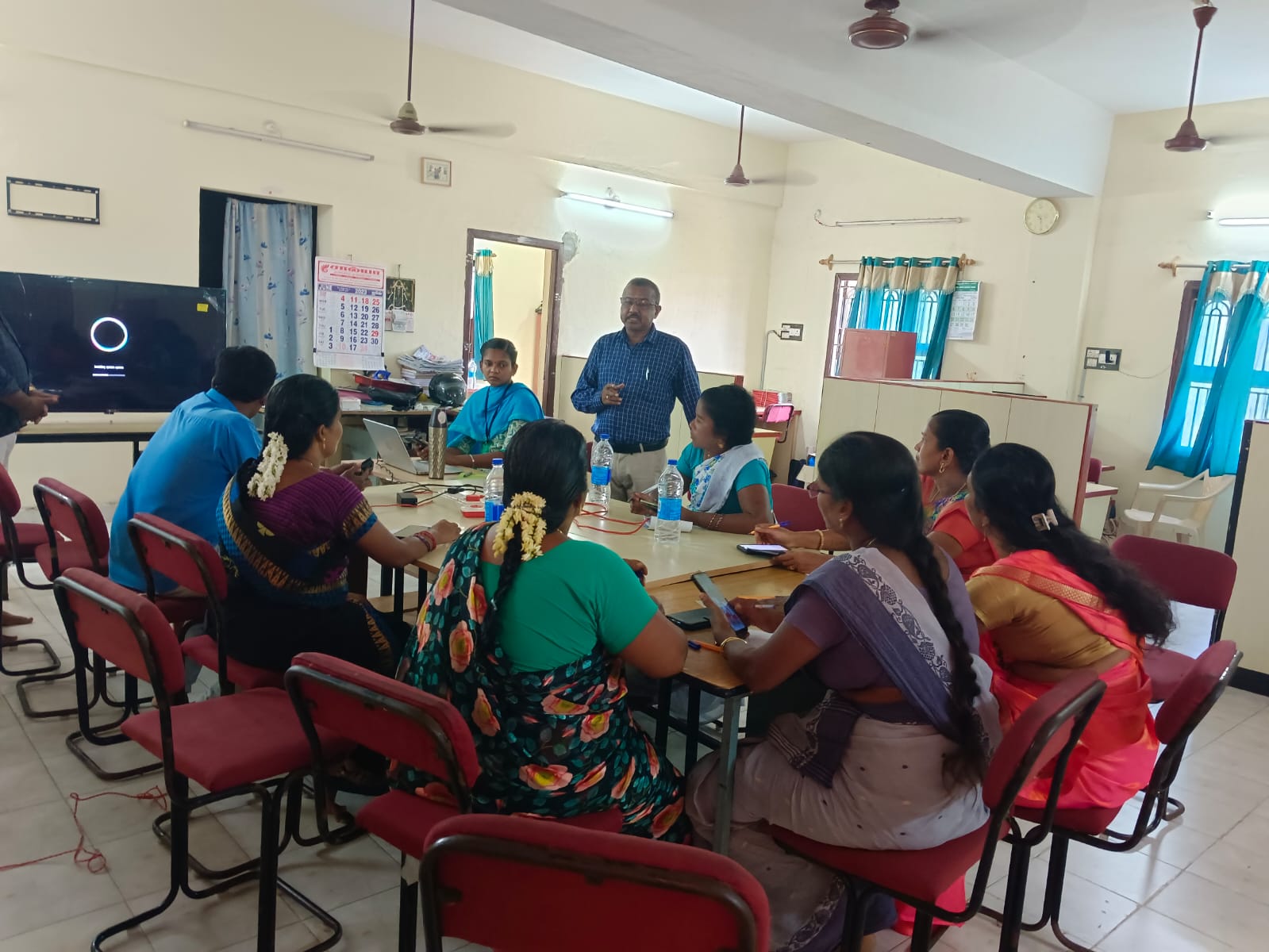
Identifying socio-economic vulnerabilities of fishermen communities
Identifying socio-economic vulnerabilities of fishermen communities
Training delivered to the enumerators for survey undertaken with fisherman community, for an in-house study on identification of socio-economic vulnerability across 14 coastal districts of Tamil Nadu
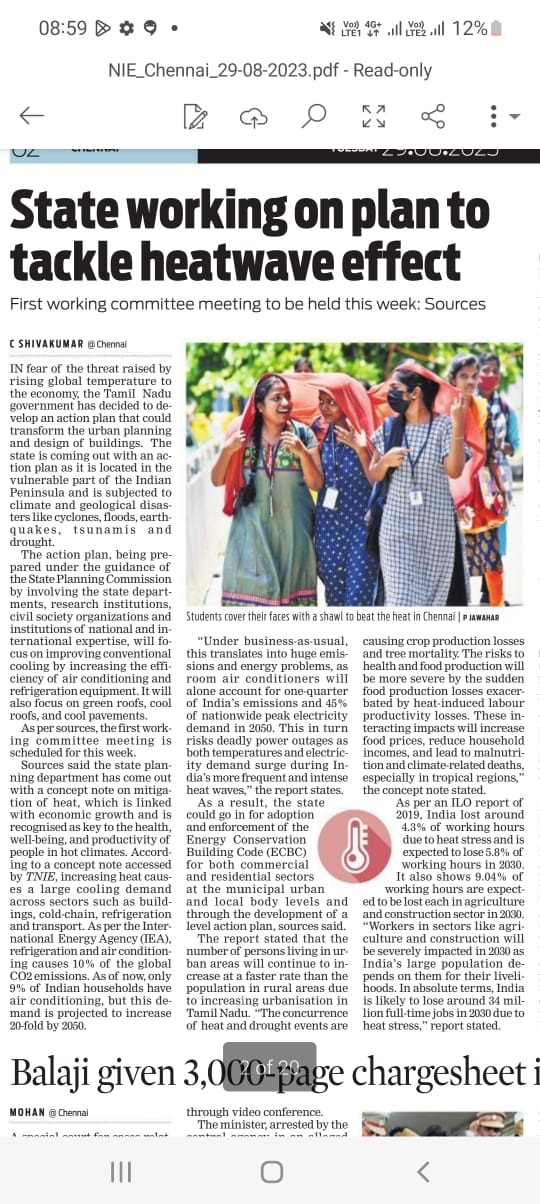
Heat Mitigation strategy and action plan for Tamil Nadu
Heat Mitigation strategy and action plan for Tamil Nadu
News clips from the New Indian Express on 29.08.2023 regarding the State’s work on tackling heat wave effect.
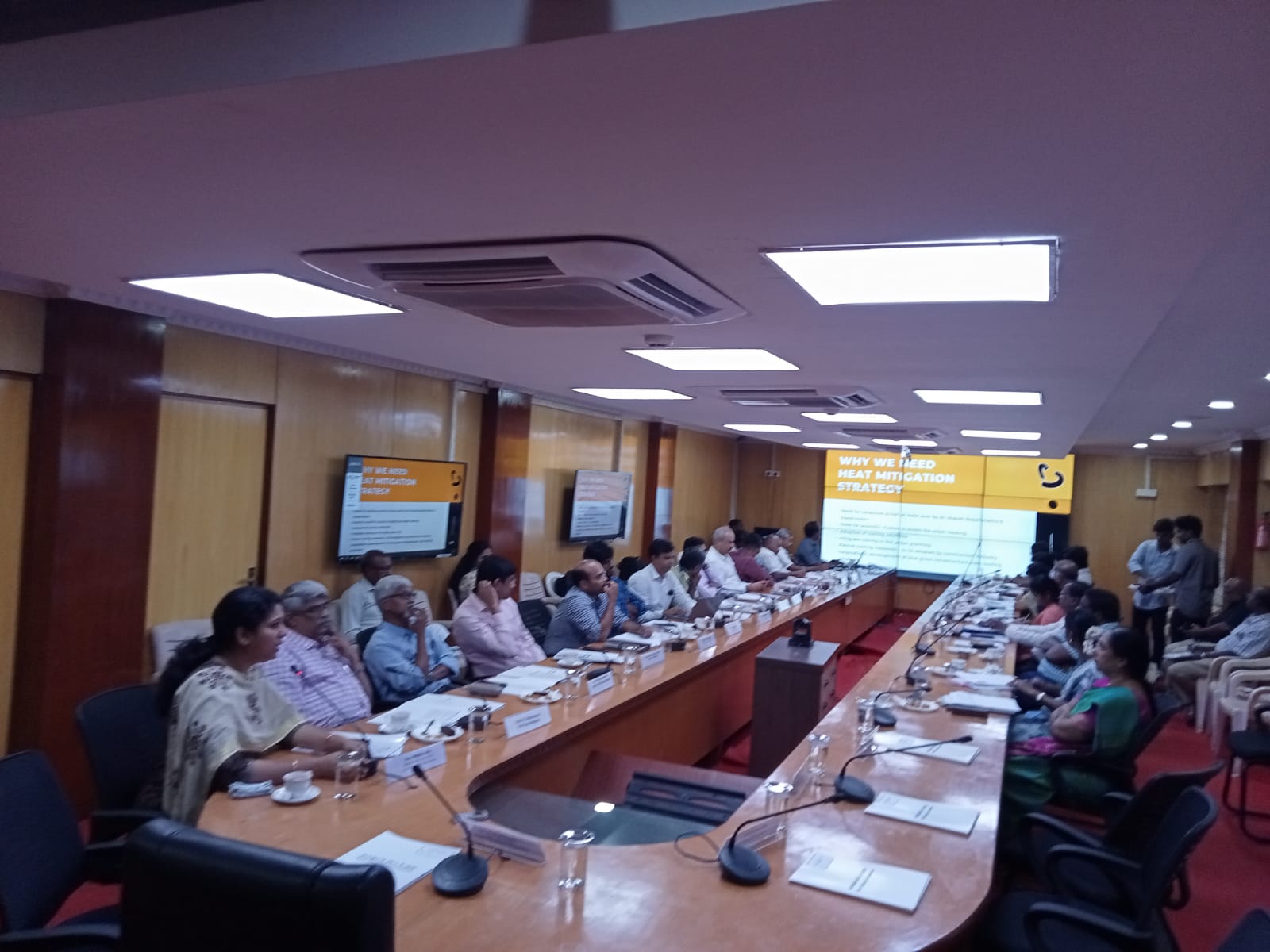
Heat Mitigation strategy and action plan for Tamil Nadu
Heat Mitigation strategy and action plan for Tamil Nadu
First working group meeting with shared vision and collective inputs from various stakeholders for Heat Mitigation strategy and action plan for Tamil Nadu
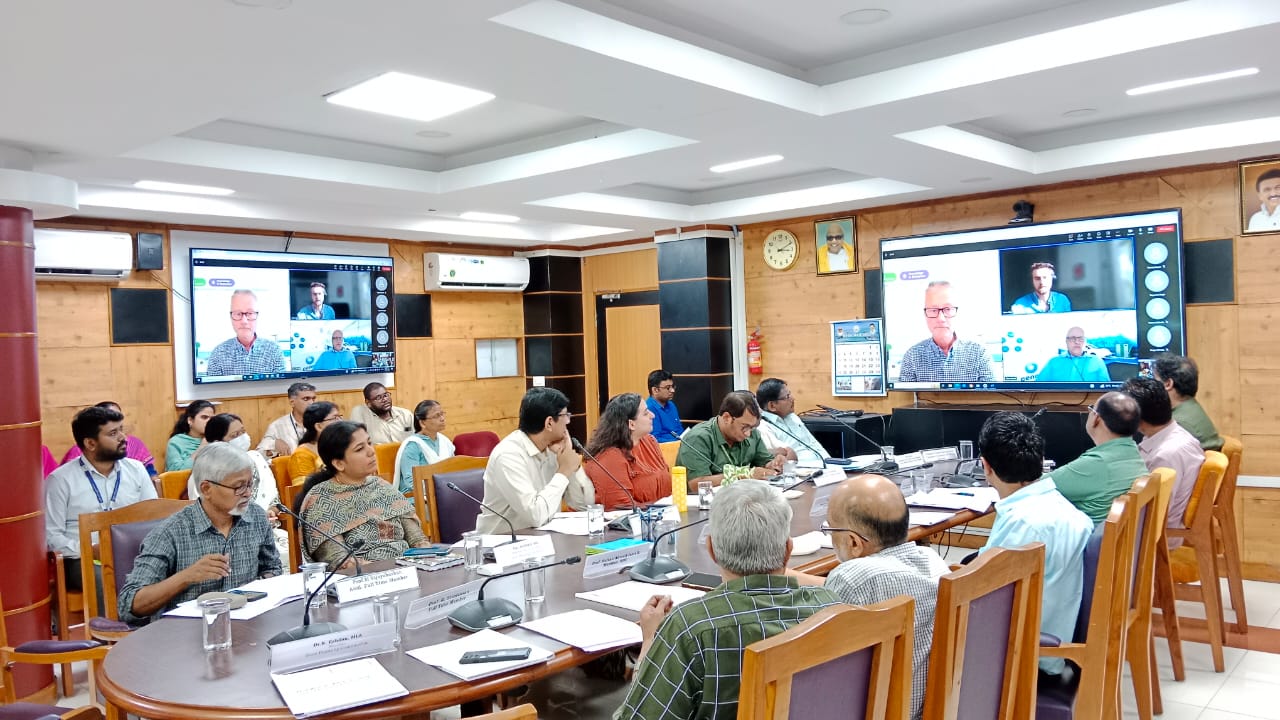
Workshop on Low Emission Zoning
Workshop on Low Emission Zoning
First consultation meeting on ‘Low Emission Zoning’ UK PACT skill share in collaboration with British Deputy High Commission and CENEX at State Planning Commission.
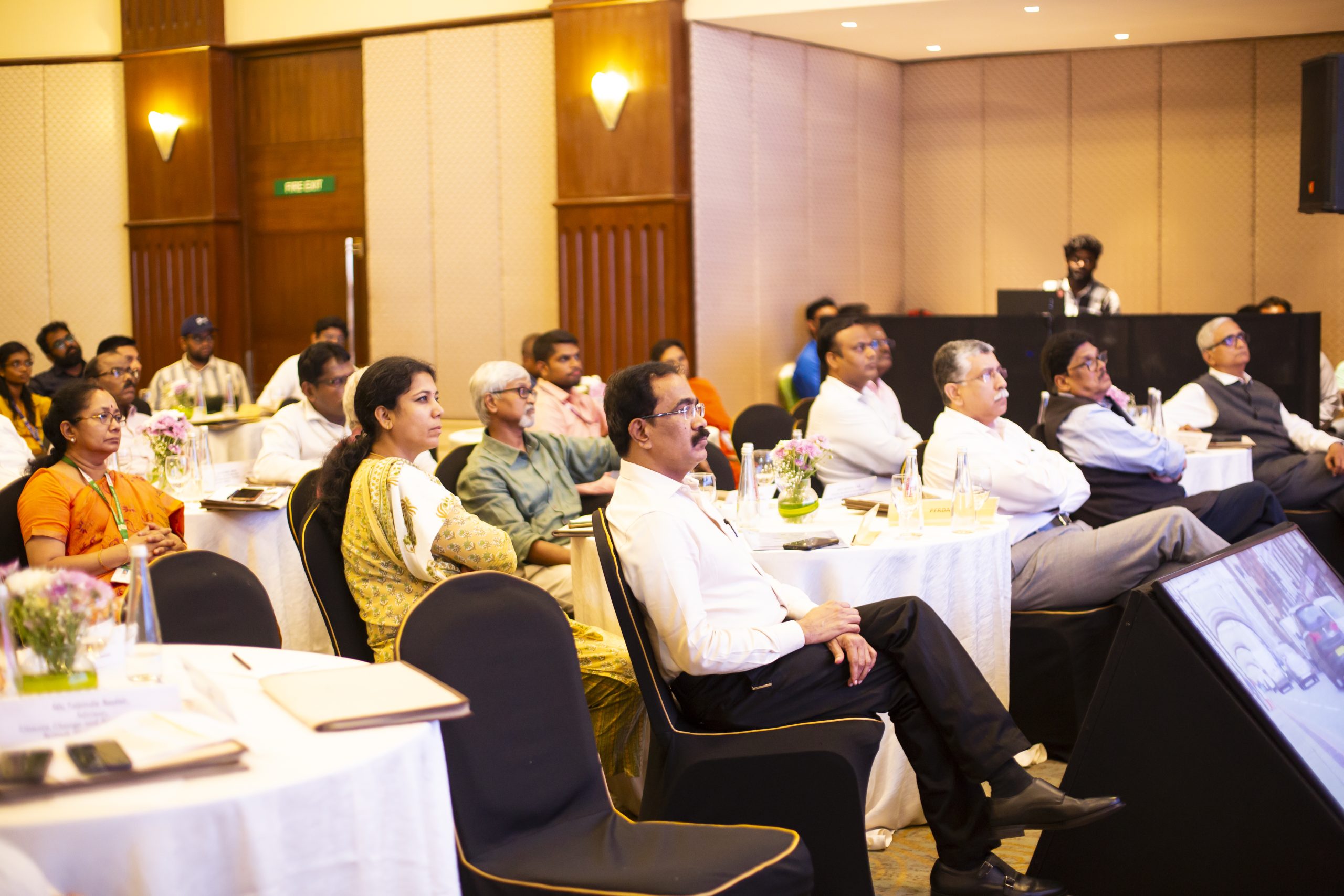
Workshop on Low Emission Zoning
Workshop on Low Emission Zoning
First consultation meeting on ‘Low Emission Zoning’ UK PACT skill share in collaboration with British Deputy High Commission and CENEX at State Planning Commission.
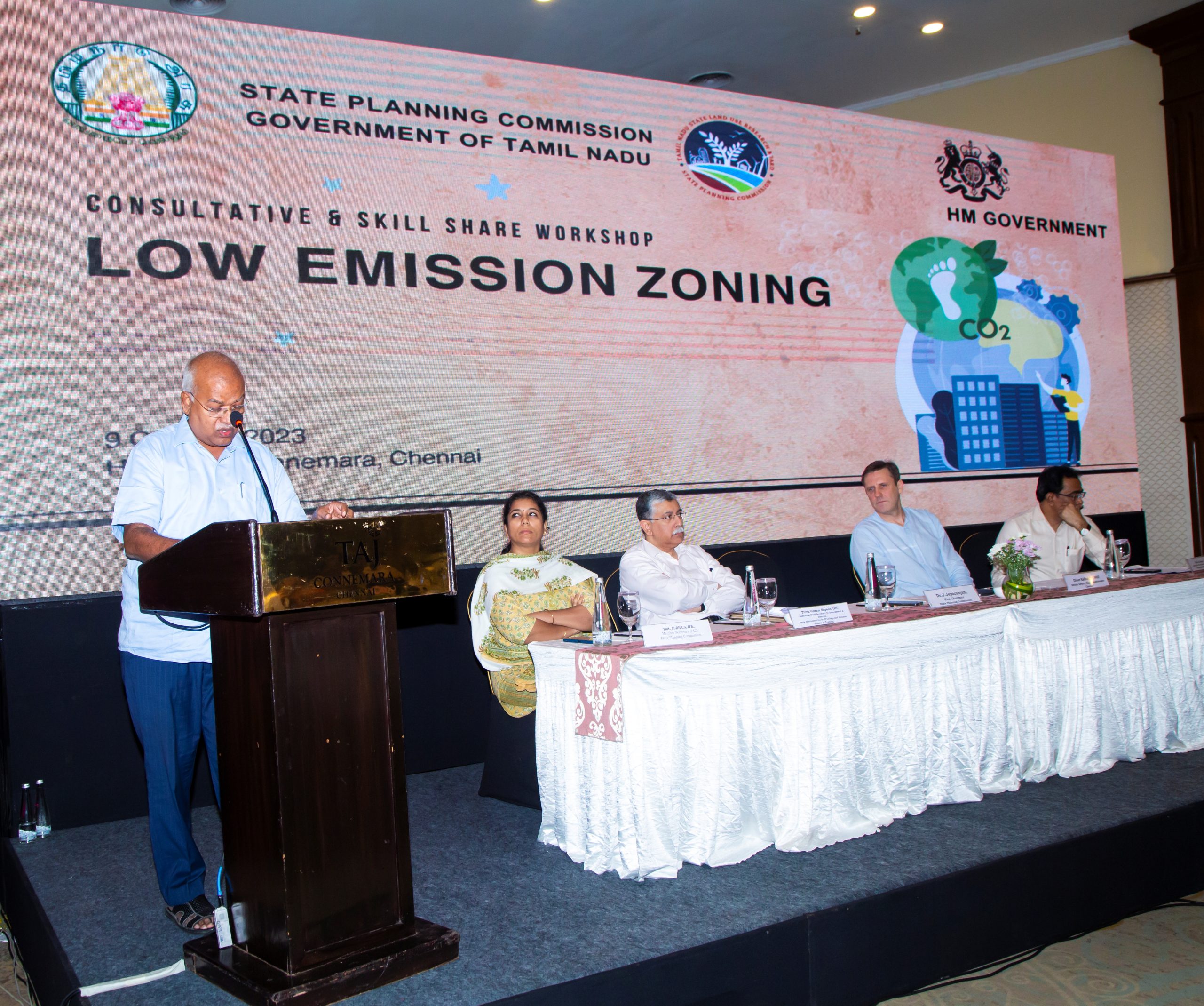
Workshop on Low Emission Zoning
Workshop on Low Emission Zoning
The Vice Chairman, State Planning Commission addressing the gathering of delegates on Low Emission Zoning.
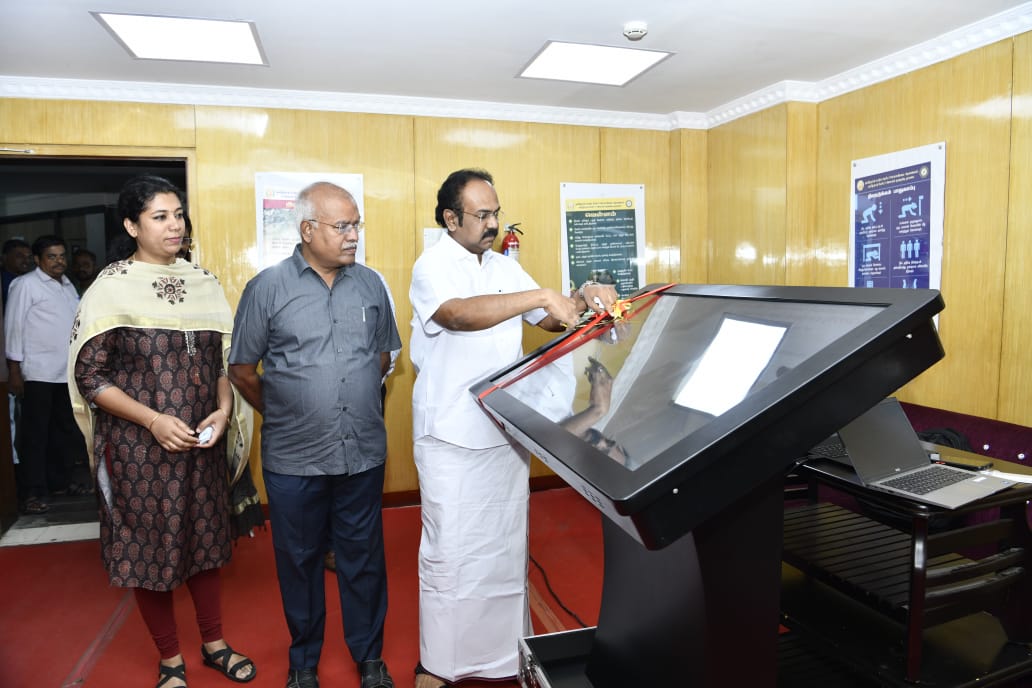
TOSCA - GIS Tool
TOSCA - GIS Tool
The Hon'ble Finance Minister inaugurating the TOSCA tool - designed to facilitate research for urban planning and analysis - funded by GIZ.

